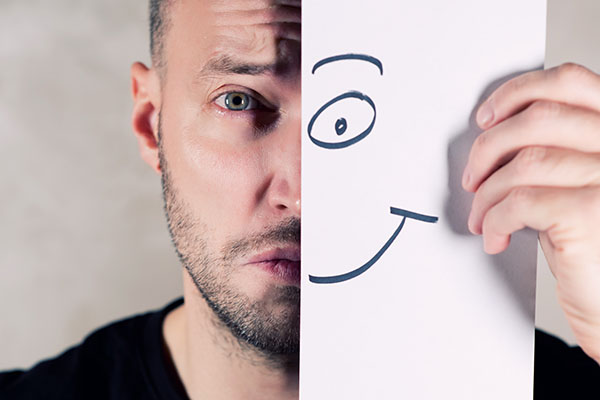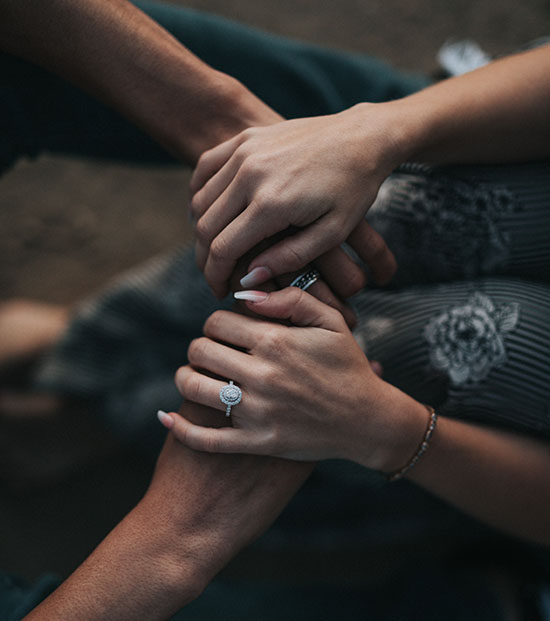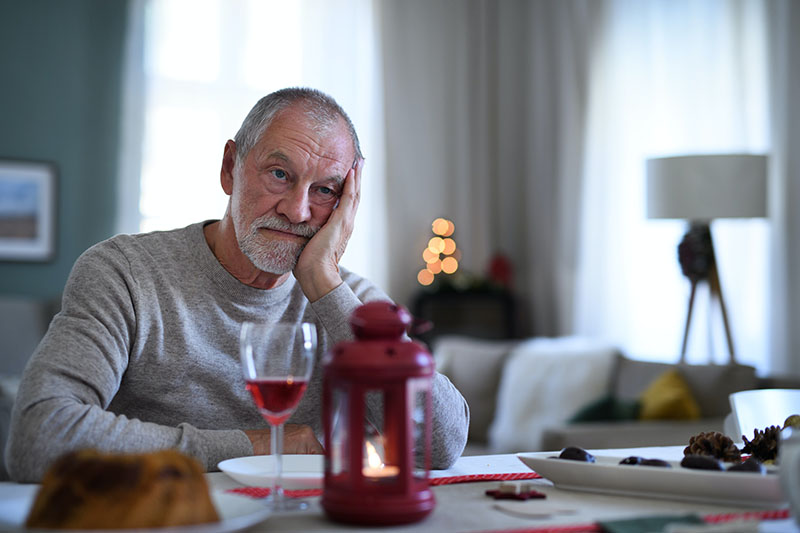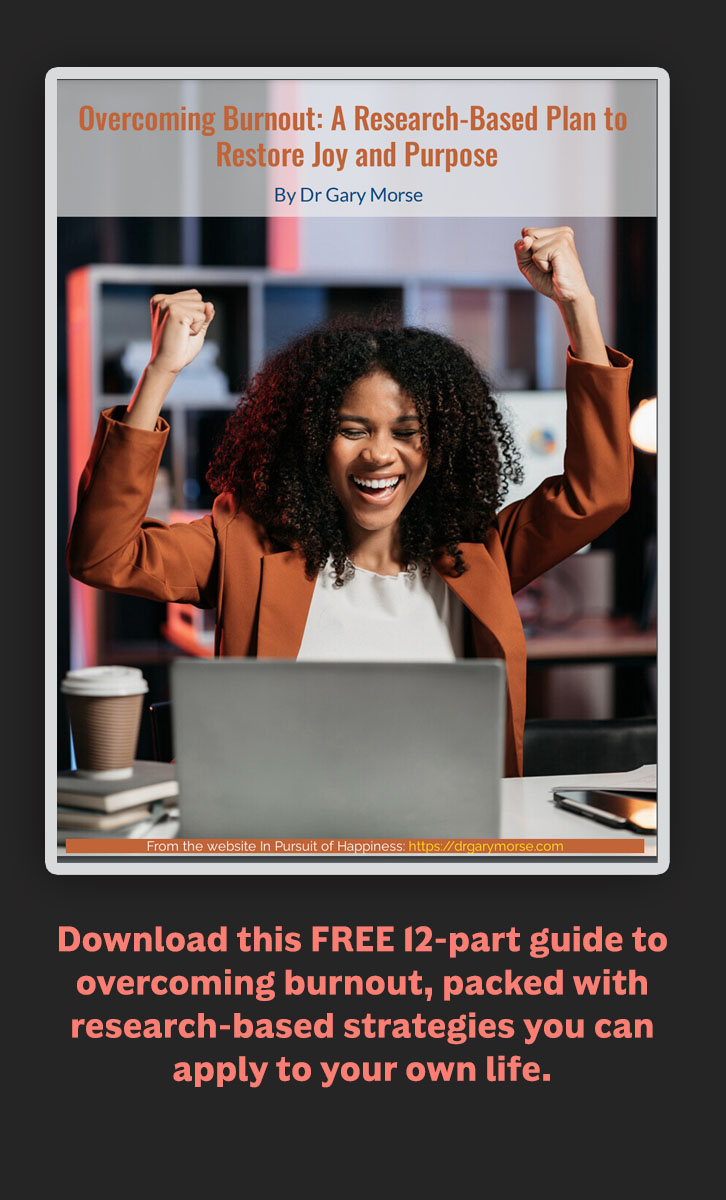The world markets Christmas as a time of joy and good cheer.
But you may not be feeling that way on the inside.
Despite happy times at Christmas—past, present, and future—the holidays also bring millions of people unwelcome presents of sadness.
The holiday season of Christmas, Hanukah, and Ramadan sometimes coincides with new stresses, bad news, and losses.
It probably doesn’t happen more frequently—more likely, the events just stand out because of the time of year—but hardship, tragedy, and loss often seem to comingle with the holidays.
Like it has this year for a good friend, whose husband died unexpectedly one day and her mother the next. Or for my neighbors whose beloved dog suddenly suffered major illnesses and then died while they were sick with COVID.
Or for one friend whose father was suddenly admitted to the hospital. Or another whose daughter was brought to the ICU.
Or for myself years ago when my mother had cancer and then my father died from a different cancer the same holiday season.
Sometimes, however, the sadness stirs not from the current season but from experiencing the first Christmas after a loss—like a breakup, an illness, a death–earlier in the year.
Occasionally life hits us with multiple losses in a relatively short period of time (for a personal example, the past 20 months has brought the deaths of my sister, my lifelong best friend, another very close friend, and my beloved Mastiff). Multiple losses can accumulate and add a measure of sadness to the holidays.
And sometimes one loss—such as the death of a spouse or a parent (or worse yet, a child)—is so great that it continues to reverberate sadness each and every holiday.
A Lack of Social Acceptance
Unfortunately, our culture provides little space and recognition that the holidays are also intertwined with sadness for many people.

Photo by Thomas Bormans, Unsplash.com
In a number of ways, some subtle and others direct, there is often a pressure from others (and ourselves) for people to feel something very different than the sadness they are experiencing. You can feel pressure to decorate your home, shop for gifts, bake holiday goods, and pose for a smiling Christmas photo.
The lack of acceptance and support for sad feelings–including sometimes from those closest to us—can exacerbate the sad emotions.
With holiday music in the air, friends buzzing about holiday parties, and a plethora of Christmas ads droning on about products promising to bring happiness, you may feel guilty to be feeling sad.
Worse yet, the discrepancy between the social (and internalized) expectations that you feel happiness for the holidays and your sad feelings can make you feel both inadequate and alone.
A Natural Reaction
But the truth is that life, even at the holidays, contains its share of hardships, losses, and sadness.
Life is trouble, Zorba the Greek said in the novel by the same name.
That may be an overstatement, as life also contains many other wonderful experiences, including happiness, love, meaning, and connection.
But life certainly holds, sooner or later, sad experiences. And losses tend to reoccur now and then, like waves, across the span of your life. Often the sad feelings come and go, triggered by associations, during the holidays. But for some people, sadness is a near constant holiday companion.

Loss is an existential reality of life, given the mortality of everyone and the impermanence of all things in this world.
And sadness is a natural human reaction to loss.
But it is still possible to be okay at Christmas and the holidays, despite feelings of sadness.
Seven Coping Strategies
We can often help ourselves through these challenging times by practicing different coping skills.
There’s no surefire guarantees for overcoming sadness but here’s seven strategies that can help.
1. Permission
Sometimes people spend a lot of energy trying to deny their feelings. Others beat themselves up for the sad feelings they are experiencing. Denying, avoiding, and self-ridicule do not bring happiness; they only get in the way of effective coping and add shame to our list of problems.
We often begin to feel better when we give ourselves permission for feeling the emotions we are experiencing. Like it or not—and you don’t have to like it—we all experience sadness at points in our lives. Once we give ourselves permission to have the emotion, we can start to cope with the reality.
Permission can include allowing yourself to actually feel the sadness.
That may sound strange, but often we do not allow ourselves to feel sadness in any deep way.
Instead, we often, sense sadness lurking at the edge of our hearts, and run away, scared of the feeling, much like a child runs from a bully. But running from these kinds of fears and feelings only strengthen them.
If we instead allow ourselves to experience the sadness, especially in a nonjudgmental way, we can see that the sadness does not have to control or bully us.

At first, the sad feeling may be strong, especially if we have previously been running from the emotion, but if we allow ourselves to experience the feeling, we often see that it can run its course. The feeling may escalate for a bit, but then it often eventually lessens and dissipates.
We can even learn to “ride the waves” of the sadness, watching it build, but then seeing (or imagining) that the feeling eventually crests and subsides.
2. Acceptance
Acceptance is a companion action to permission. Acceptance does not necessarily mean liking the feeling or the situation that created the sadness. But acceptance means you see the reality of the events and your emotions.
It has become popular in our culture to repeat the saying, “It is what it is.”
Unfortunately, however, this statement can contribute to feelings of helplessness and resignation.
I suggest that you instead use a modified statement that is more hopeful about change: “It is what it is—right now.” The last two words indicate that there are many things that can change in time or with action—especially your sadness.
3. Soften the Sadness
Giving yourself permission to feel the sadness and learning to “ride its waves” is one way to soften the intensity of sadness. Two other ways involve deep breathing and loving-kindness meditation.
In deep breathing, it is helpful to start with a few deep breaths while sitting in a relaxed position. Breathing deeply, slowly and from your belly or diaphragm, tends to relax your body and mind. And then as you inhale, imagine you are breathing in comfort and peace to surround and comfort the sad feelings. You can also then imagine you are breathing out some of the sadness as you exhale.
You can also give yourself additional comfort, further softening the sadness, by combining deep breathing with a loving-kindness meditation. In this meditation you breathe in love and kindness for yourself and your emotions, allowing the loving-kindness to begin to soothe and heal the sadness. (You’ll find a loving-kindness meditation exercise, on my Resources page.)
4. Take Action
It’s become popular in our culture to not do something by saying, “I’m not feeling it.”
It is okay at times to give yourself permission not to do some things—e.g., put on a smiley face at a Christmas party when you’re feeling very sad.
But research also shows that sometimes our emotions follow rather than precede our feelings.
In other words, by going ahead to that Christmas party and acting friendly when we have been feeling sad, we may find that our mood lifts and we feel better. Sometimes we have to build our way out of sadness feelings by taking action, even when we are not feeling. Try it.
5. Get Support
When we feel sad, many of us isolate, especially at the holidays. At times, taking space can be helpful, but a wealth of research shows that getting social support helps us emotionally.

Photo by Meg Aghamyan, Unsplash.com
The first step of getting support can feel daunting, especially for introverts. But if you step outside yourself and take the perspective of people who love and care about you, wouldn’t you want to help?
One way to start is to write down the names of the people who love or care about you. Then rank order the list in terms of those people whom you find easiest to talk with or who are the most supportive.
Try then calling or getting together with that person and let them know you’re feeling sad. If there’s something in particular that might help (e.g., going out to dinner), go ahead and ask for what you need.
But sometimes the simple process of talking about your sadness with someone who cares is healing.
6. Extend Your Horizons
Major losses and intense sadness have a way of winnowing our attention. We can become overwhelmed with the loss.
At such times, the sadness can feel all-consuming, as if it is the only emotion that we can feel and the only thing that matters. Sometimes, when the pain of the sadness is sharp, we think that it will last forever.
Although these thoughts and emotions are common, they distort the richness of our life, past and present.
When feeling hemmed in by sadness, it can be helpful to extend our time horizons back and to remember life and our feelings before the loss. There have been many times of joy, happiness, connection. And though we may be loath to think about it, in many cases we can remember joy in our lives before we even knew the person or object that we have lost.

Photo by Anastasilia Chepniska, Unsplash
For example, the loss of a spouse or romantic partner can feel devastating. It can be difficult to believe we can ever feel happy again.
But if we go back in our memories, we can recall times of happiness, excitement, and other positive emotions before we ever met that person.
This exercise is not meant to devalue the importance of the person lost, but only to put it in the larger context of our lives and to remind ourselves that we are resilient. We are capable of good feeling, not just sadness, even without the individual currently being present in our lives.
We can also extend our time horizon forward. We don’t like to think about it when we are feeling great sadness, but in the future we again can feel other positive emotions.
Think about other times in your life when you felt heavy with sadness. It wasn’t always easy, and it may have taken time, but you were probably eventually able to feel positive emotions again. And so too, even with the current sadness, you can again experience other positive emotions.
And for those with beliefs of life after death, we can also extend our horizon far into the future to a reunion with lost ones after this life.
7. Add Meaning
Sadness is typically triggered by our sense of loss of something or someone. At times of loss, our attention is often narrowed to what’s missing, to the absence of what was. Sadness then grows.
But there’s a flip side to the sadness that is born from a loss. The sadness arises because you cared and loved, because you formed a deep connection, because you created meaning in your life.

Photo by Nathan Dumlao, Unsplash.com
Sitting next to your sadness, then, is a sign of achievement. You are sad because you fulfilled an essential human need to create connection and meaning in your life, to care about someone or something more that yourself. The loss engenders sadness, but it also signals an achievement of the human heart—yours. And you can keep loving in memory and spirit those you have lost.
Having been is perhaps the surest way of being, as Viktor Frankl observed. In this view, the meaning and connection that you created will always be, and can never be fully taken away, even with time and change.
Professional Help?
If you or someone close to you is feeling sad, it may be worth trying the seven strategies for coping with sadness. There are no guarantees but each of the strategies have been helpful to some people. Some specific coping skills may work better for you than others, but the important thing is to find a way to ease your sadness.
And if none of these or self-help coping strategies work for you, it can be helpful to talk with a professional, like a psychologist, other therapist, or psychiatrist. Sometimes we can get stuck in sadness. Our own efforts may not seem to help much.
Consulting a professional at such times is a wise choice. This is especially important if the sadness has evolved into an ongoing depression and particularly crucial if you have thoughts of hurting yourself.
There’s no shame in feeling sad—and there’s no shame in getting professional help, either.
Overcoming Sadness—Sometimes
Each sadness, each person, is different. But in general, sadness often runs its course. Though we sometimes feel full of sadness when the loss is fresh, or at special times like anniversaries and holidays, sadness sometimes fades over time, especially when we use coping strategies.
In such cases, the disappearance of sadness over time does not mean the person or situation that we miss is unimportant to us now; it just no longer holds us tightly in the jaws of sadness.
There are other losses—such as the death of a beloved–that may never fully dissolve. In such situations, we may feel like life without sadness is not possible. We may not even want to let go fully of the sadness—it feels like a way to honor and to connect to the departed.
Your goal does not necessarily have to be make sadness disappear. Feeling sad at times of loss is a part of being human and as stated earlier a symbol of your meaning and connection in life.
But sadness does not have to dominate your day, day after day, even at times like Christmas when we are more acutely aware of our losses.
Often society, and sometimes our family and friends, do us a disservice, giving us messages that we shouldn’t be sad, at least after an initial, brief period of mourning.
There is also often an assumption that we must either be happy or sad.
The Capacity of the Human Heart
The truth is that the human heart has a great capacity. Our hearts can simultaneously hold both sadness and more positive emotions, like happiness, joy, and contentment.
And so one of the most fundamental coping strategies is to learn to allow ourselves to feel not only sadness but the range of other emotions. We can learn to put sadness in the context of our lives, where it is one chord, albeit an important one, within the larger symphony of feelings in life.
I wish no one sadness—but it is part of being human, alongside our ability to feel love, meaning, connection, joy.
So it’s okay if you feel sad.
And Merry Christmas, too.

Photo by Jamie Street, Unsplash.com



Thanks for a great article. I am passing it on.
Thank you, Debbie. There are certainly many people who face sadness and other difficult feelings, especially around the holidays. Hope it helps!
Thank you for your explanations of how sadness is a part of our lives. Experiencing it hard to explain to others.
Thank you, Margaret, for your poignant comment. Best wishes and take care.